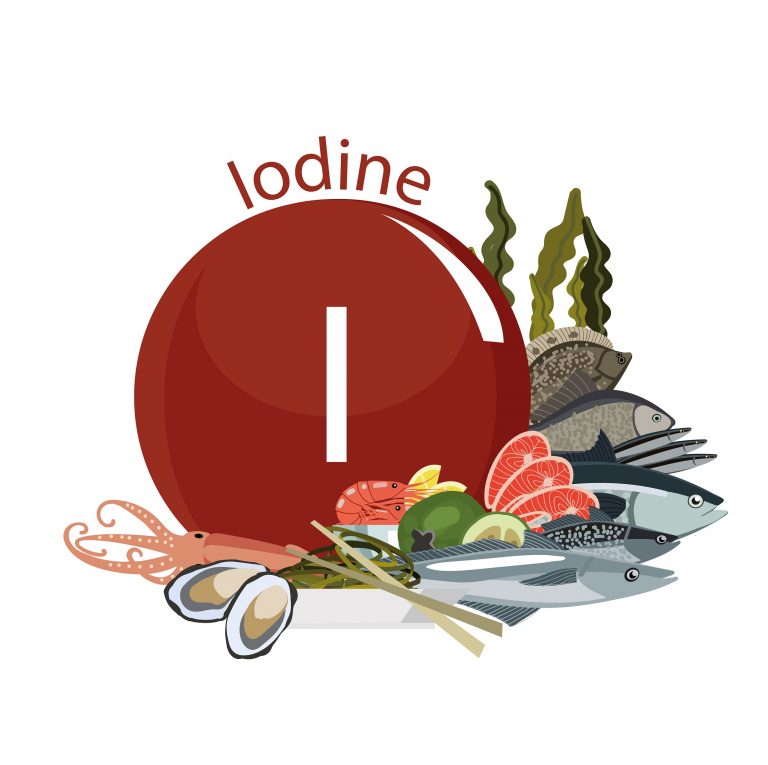Iodine is certainly associated with the sea, and not without reason. It is there, in the coastal regions, where we can find the most of it. Iodine is a constituent of air, water, soil, and living organisms, it belongs to microelements and its presence in our body is very important for our health.
Iodine properties
Iodine is an element that is mostly stored in the thyroid gland, but small amounts of it are also present in the blood, liver, and brain. It is an element necessary for the production of thyroid hormones. These hormones (thyroxine and triiodothyronine) are essential for cell growth and development, the metabolism of proteins, carbohydrates, and mineral salts. They play a very important role in the processes of energy production, regulation of metabolic rate, and thermogenesis. That’s why these hormones are so crucial for our organism and their imbalance can significantly disrupt the functioning of the entire body. In addition, iodine is needed to burn excess fat, improve mental performance, and increase vital energy.
Iodine deficiency is noticeable in people living in regions with low iodine content in the environment. Iodine deficiency can cause hypothyroidism, goiter formation, mental retardation, and weight gain or lack of energy.
Iodine sources

The main dietary sources of iodine are fish and marine crustaceans as well as salt. However, despite the iodization of table salt, iodine deficiency is still quite common. In other products, the iodine content depends among others on the concentration of iodine in the soil, the use of fertilizers, iodine concentration in the feed fed to livestock.
The iodine requirement for an adult is approximately 150 µg/day.
It is worth mentioning that eating products rich in iodine together with those containing magnesium may interfere with iodine absorption. Thus, combining fish and buckwheat groats on a plate is not necessarily a good solution if we want to supply the body with iodine.






